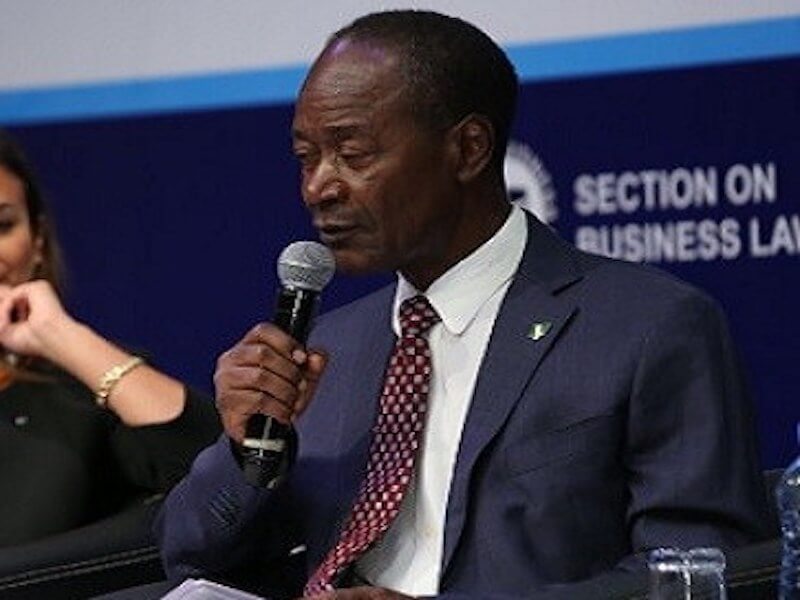Group Chief Executive Officer of Dangote Cement, Joe Makoju has revealed that the company has invested a whopping $3B to build manufacturing plants an
Group Chief Executive Officer of Dangote Cement, Joe Makoju has revealed that the company has invested a whopping $3B to build manufacturing plants and import/grinding terminals across Africa. The company’s operations, according to Makoju are in Cameroon (1.5Mta clinker grinding), Congo (1.5Mta), Ghana (1.5Mta import), Ethiopia (2.5Mta), Senegal (1.5Mta), Sierra Leone (0.7Mta import), South Africa (2.8Mta), Tanzania (3.0Mta), Zambia (1.5Mta).
For the second quarter under review, Makoju also revealed that while total Nigeria sales volumes went up by 13.9 per cent to 7.8Mt, Pan-African volumes reduced by 3.9 per cent, mainly due to shutdown in Tanzania. In all, the company, which employed 27,952 workers in Nigeria in 2017 had its revenue increased by 16.9 per cent and its earning per share also increased by 3 per cent to N6.60 kobo per share for the second quarter, ended in June 30, 2018.
Makoju said: “Our first-half performance was very strong and driven by an excellent recovery in Nigeria, where our sales volumes increased by nearly 14 per cent and revenues rose by more than 18 per cent. Pan-African operations saw a slight fall in volumes but both revenues and EBITDA increased because of better pricing and currency conversion effects. In addition, we achieved the largest-ever issuance of Commercial Paper by a Nigerian company when we issued ₦50B Series 1 & 2 Notes at the end of June, with a discount rate that reflected the strength of our Company and its excellent credit ratings.
“Of course, our strong performance has been overshadowed by the tragic and heartbreaking events in Ethiopia. I would like to pay tribute to my colleagues Deep Kamra, Beakal Alelign and Tsegaye Gidey and offer our sincere condolences to their families.”
It would be recalled that the Chairman of Dangote Cement, at the company’s recently concluded annual general meeting (AGM), Aliko Dangote attributed the 31 per cent increase in the company’s revenue, of N805.6 billion, for the 2017 financial year, to its pan African operations growth which also recorded a significant increase in revenue from N195 billion to N258.4 billion in 2017. He said: “Pan African operations increased volumes by 8.4 per cent, with Ethiopia, Senegal, Cameroon and South Africa all performing strongly and close to their operating capacity.”
Noting that the company experienced some challenges in operating in sub-Saharan Africa, Dangote said the Management responded in robust fashion and benefited from “…the diversity we have created across our business and because of our local knowledge and attitudes towards doing business in neighboring countries in Africa.”
Explaining the rationale behind the success recorded by the Dangote Cement’s revenue, the acting Group Chief executive, Joe Makoju said “… the increase was helped by our decision to increase our use of local coal in Nigeria and that also helped to improve our fuel security, maintain production uptime and it reduced our need for foreign currency. We source coal from our parent company, Dangote Industries and from another Nigerian supplier, and we are very happy with the way this has worked out for us because it has enabled us to phase out the use of expensive low pour fuel oil in our kilns and also to reduce our use of imported coal”
On the future growth plans for the Group, Makoju said “…As it stands, I think we will focus on building new grinding plants along the coast of West Africa, and ensure we have clinker export facilities in Nigeria. We are looking at the possibility of two new lines in Nigeria, perhaps by the end of 2020 and its likely these will be in Edo state and Obajana, with a combined capacity of 6Mta”
